Published:
Last modified:
A legal timeline of the restrictions that impacted the hospitality sector
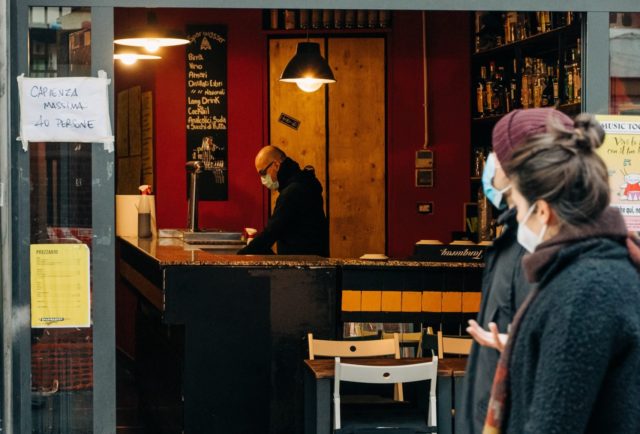
Introduction
In early 2020, the odd news clip started to emerge from the World Health Organisation about the spread of Coronavirus. For the majority of us this probably merged into the other news of the time and I suspect none of us would have thought that Coronavirus and the COVID-19 name would be written indelibly on the history of our planet, claiming millions of lives and raging havoc on economies across the globe.
The rights and wrongs of how we were governed before, during and after the COVID-19 pandemic will be debated for years to come, but here we’ll be looking at the legal timeline of the restrictions that impacted the hospitality sector, and in particular pubs, bars, restaurants and nightclubs, in England only; from the start of restrictions to step 4 of the roadmap and the full re-opening of the hospitality sector in July 2021.
“No event, man-made or natural, neither war nor recession, nor previous outbreak of a communicable disease has so wounded the hospitality sector as COVID-19. As the nation, and one hopes the world, slowly emerges from this pandemic like the dust-covered survivors of some B-movie calamity climb out of the rubble and blink in the sunlight, an article like this cannot be written without a profound sense of sadness for those who have been lost in the last 18 months. Not only that, but there are bars and lounges and snugs all over the country that even now play host only to the ghosts of laughter, the echoes of clinking glasses. One has to ask if it all couldn’t have been handled differently. We have lost so much that we cannot recoup.”
Andy Grimsey, Senior Consultant Solicitor, Poppleston Allen
“Human enjoyment, happiness and the hospitality industry are interwoven. Aristotle observed over 2,000 years ago (with modern apologies for the gender-blindness) that “man is by nature a social animal”. The hospitality sector is the primary host for social interaction. Without it, human happiness is reduced. Curtail the ability of the sector to operate and our instinct, need, to engage with our fellow humans is frustrated and society diminished. Since the hospitality sector has faced the greatest injuries to any business sector as a result of Government restrictions, and has taken more tireless steps to provide a safe environment for the public than any other, it deserves the most help and understanding from the powers that be as we move on from life in the time of coronavirus”.
Gary Grant, Barrister, Francis Taylor Building
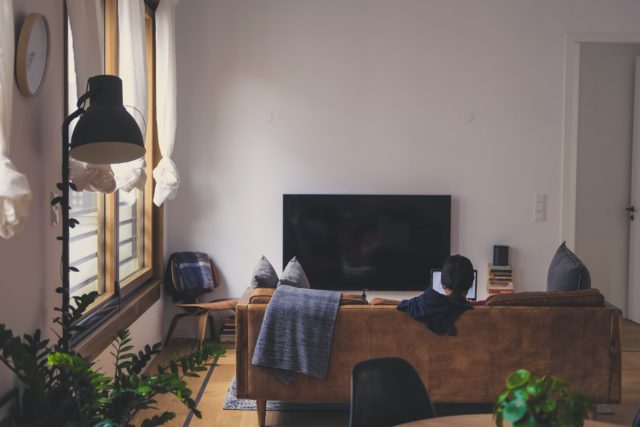
The First National Lockdown
On Friday 20th March, Prime Minister, Boris Johnson announced the first extraordinary measures to slow the spread of COVID-19, with his ‘Don’t go out tonight’ speech from Downing Street, stating: ‘We are collectively telling cafes, pubs, bars and restaurants to close tonight as soon as they reasonably can, and not to open tomorrow…. We’re also telling nightclubs, theatres, cinemas, gyms and leisure centres to close on the same timescale.’ The following day, at 2pm on Saturday 21st March 2020, the Health Protection (Coronavirus, Business Closure) (England) Regulations 2020 came into effect. The effect of the Order was that restaurants, bars and pubs had to close for the consumption of food or drink on the premises, and other premises such as theatres and cinemas, nightclubs, casinos and betting shops had to close completely.
On Monday 23rd March the Prime Minister gave another speech, this time instructing the nation to ‘Stay at Home.’ There followed hastily issued guidance and then on 25th March 2020 the Coronavirus Act 2020 came into effect. The vast majority of its provisions did not touch upon the licensed trade at all, but there were provisions allowing directions to be given in respect of events and gatherings in premises (albeit most hospitality and leisure businesses were closed by then); that Courts and Tribunals could use both audio and video technology in proceedings, and extending BID arrangements where the arrangements were due to expire before 31st December 2020 to be extended until 31st March 2021.
On Thursday 26th March 2020, the Health Protection (Coronavirus, Restrictions) (England) Regulations 2020 were made which significantly reduced people’s free movement by prohibiting leaving home without a “reasonable excuse”, closing all but essential high street businesses, with some (including some hospitality businesses) permitted to operate by takeaway or delivery only, and giving the Police powers to enforce the new laws with fixed penalty notices, as an alternative to prosecution for an offence.
In this flurry of legislation, you could look out of your bedroom window and see no traffic, and quite possibly no human beings at all, quite an extraordinary sight for such a crowded island as ours. I remember watching four police cars and one police van speeding along our otherwise deserted street to what turned out to be a private (and well attended) party hosted by a well-oiled lady in a nearby village, who had decided she was very obviously not going to play by the new rules. That night she may well have experienced her own version of social distancing courtesy of the local custody suite.
On 30th March 2020 PPL PRS, the music licensing company announced that they were not going to charge customers for music usage during the period that those businesses were closed due to COVID-19, and to introduce more flexible payment policies, to support businesses during the pandemic.
By this time of course, the industry was reeling. The flurry of legislation, regulations and guidance was often inconsistent and tainted with a worrying blur of the distinction between what is law (legislation and regulations) and what is only guidance and nothing more. Not only was the hospitality sector trying to cope with being closed but also struggling to understand in what ways their businesses could remain open. Poppleston Allen issued a guidance note on 9th April 2020 in the light of some of the queries our clients were making, and it provides a taste of some of the legal and operational challenges at the time. Clients were asking about the change in planning rules, which enabled restaurants, cafes and pubs, which did not currently offer delivery and hot food takeaway to be able to do so under planning legislation (The Town and Country Planning (General Permitted Development) (England) (Amendment) Order 2020). The issue of annual fees was concerning operators too, with such fees falling due for businesses that were neither open nor necessarily possessing the funds to pay them. On 8th April Kit Malthouse MP, Minister of State for Crime and Policing wrote to Local Authority Licensing Committee Chairs across England and Wales recognising the difficulties faced by regulators and businesses, urging a collaborative and pragmatic approach to minimise damage to both those businesses and the licensing objectives. He stated: “The authorities should consider delaying any suspension of the licence where the delay in payment or non-payment is related to COVID-19”. Did that help? A little, perhaps, but the obligation to pursue annual fees (and the Late Night Levy) were set out in statute, and however much licensing authorities wanted to help their local licensees it was only in the Government’s gift to remove that burden and make the minor change required in the legislation (“must suspend” to “may suspend”) – something which still has not been done to this day.
Another pressing issue was that of Pavement Licence renewals. Why pay for a renewal of your Pavement Licence when you cannot open and serve your customers? Quite simply, if a Pavement Licence is not renewed then it lapses and a fresh application, with no guarantee of a grant on the same terms, needs to be made. The process could also take months. There was again little clarity from Government and consequently from Licensing Authorities about this at the time (although in July 2020 this was to change).
Sadly, we also found ourselves advising clients about the impact of insolvency on their Premises Licences, and particularly the subject of Company Voluntary Arrangements. Landlords began asking about “Shadow Licences” (a Premises Licence on identical terms to the original one, but which will remain in existence if the main licensee becomes insolvent and the licence is lost).
Some of our festival clients were asking whether the terms of their Premises Licence allowed them to move the date of their festival back towards the end of the year – many of us hoped that COVID might be over by then of course. This required detailed checking of licence conditions, as many festival and event licences have a condition that they can only take place within a certain time-window in a year.
One particular hot potato was the question of providing takeaway “off the premises” and what constituted ‘off’ the premises. Many premises saw this as a lifeline, but the Regulations made it clear that an adjacent seating area, even if it was not provided by the licensed business, could be treated as part of the premises and, therefore, the business would be in breach of the Regulations if customers were taking food or drink away and then sitting down to eat it there. Such provisions created an equal mix of creativity and confusion. How far was ‘adjacent’? Across the street? Down at the nearby park?
In early April, the Institute of Licensing, and then in mid-April the Local Government Association, issued guidance on managing licensing during COVID-19, which provided some welcome clarity and encouraged local authorities to take a pragmatic approach.
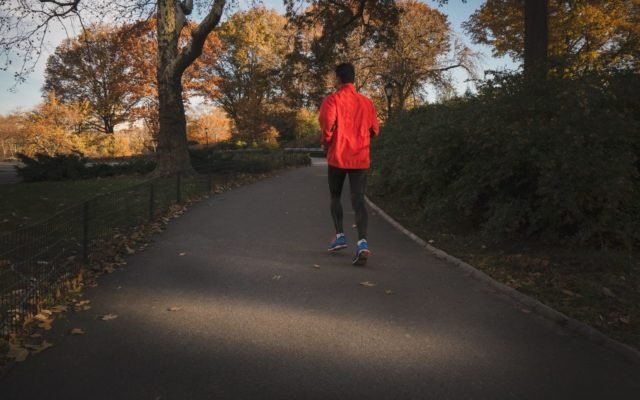
Outdoor Recreation Allowed
The first review of the Regulations was carried out on 16th April. The Regulations were extended without major changes.
On 10th May, a few days after the second formal review of the lockdown in England was due, the Prime Minister made a televised statement in which he indicated “a change in emphasis” to the Government’s guidance on work and exercise during the lockdown. He announced that the Government was now:
- “Actively encouraging” those who cannot work from home to go to work. The Prime Minster said that the Government would publish new guidance for employers to make workplaces COVID-secure;
- Encouraging people to take more and even unlimited amounts of outdoor exercise;
Increasing the fines associated with fixed penalty notices under the Regulations.
On 13th May, Regulations were made in England which amended the first Coronavirus Restrictions Regulations – the Health Protection (Coronavirus, Restrictions) (England) (Amendment) (No.2) Regulations 2020 – these amended the list of reasonable excuses to be outside to include recreational purposes, and making it clear that people can meet one person from outside their household in open air spaces for recreation or exercise. There was no specific good news for the hospitality sector.
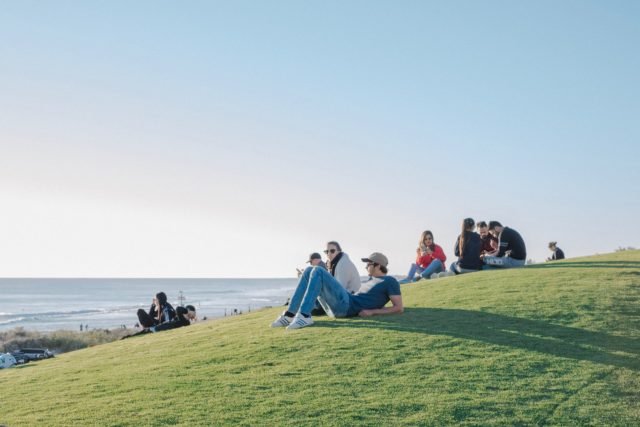
Restrictions on Gatherings
The third formal review of the Regulations was due on 28th May. That day the Prime Minister published England’s COVID-19 Recovery Strategy. On 1st June, the Health Protection (Coronavirus, Restrictions) (England) (Amendment) (No.3) Regulations 2020 came into effect, which significantly altered the first Coronavirus Restrictions Regulations in England. They included:
- Removing the prohibition on being outside without a “reasonable excuse” and replacing it with a requirement to have a “reasonable excuse” to stay overnight somewhere other than your home;
- Changing the gatherings restrictions to restrict outdoor gatherings of more than six. This gave effect to the Prime Minister’s promise in late May that the rules would be relaxed to allow people to meet outside, including in private gardens, in groups of up to six from 1st June;
- Amending some Police powers and changing the requirement to review the Regulations from every three weeks to every four.
During this period, premises that were providing off-sales both of food and drink had many questions. Trade Bodies such as UK Hospitality and the BBPA, as well as new partnership-based organisations such as NEXSTART attempted to provide some clarity on issues such as providing off-sales in sealed or open containers; whether seating can be provided; what social distancing measures needed to be in place when customers came to collect food or drink from the premises; whether toilets could remain open even though only off-sales were allowed and how liable were licensees for customers taking sealed or open containers away and then drinking them in areas caught by a Public Space Protection Order (controlled drinking zone)?
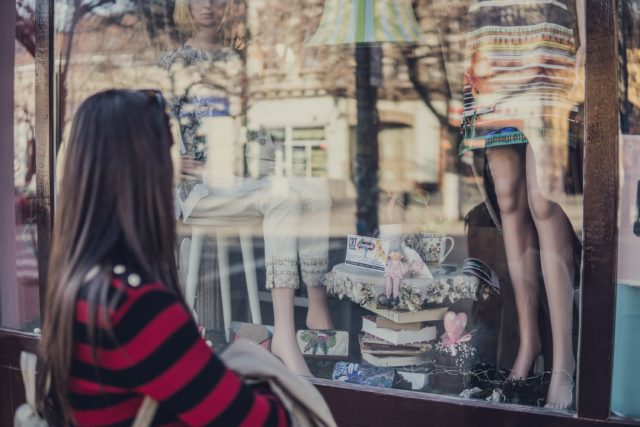
Retail Re-Opens and Support Bubbles Introduced
On 12th June the ‘Amendment Regulations No.4’ for England permitted retail business to reopen from 15th June, and allowed those living alone or in single parent households to be able to form a “support bubble” with one other household. Again, little or no comfort for hospitality.
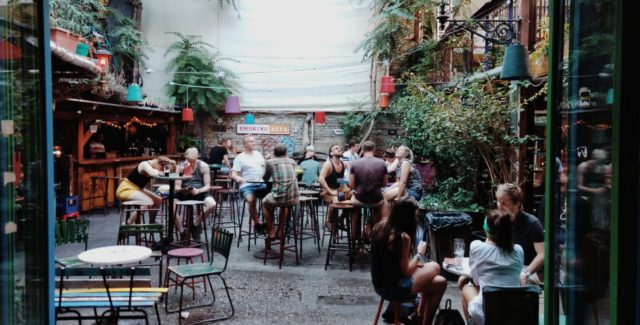
The Summer Arrives and Offers Hope to the Hospitality Sector
Major changes to England’s lockdown rules were announced on 23rd June. On 24th June, the Government issued long-awaited guidance documents to pubs, bars, restaurants, hotels and other licensed premises, detailing how licensed premises could open safely whilst minimising the risk of spreading COVID-19 (applicable to England only).
On 3rd July new Coronavirus Restrictions Regulations were made for England, coming into force on 4th July (the Health Protection (Coronavirus, Restrictions) (No.2) (England) Regulations 2020).
The new Regulations permitted bars (including in hotels), pubs and social clubs to open from 06:00 on 4th July, subject of course to the hours authorised on their Premises Licence. Restaurants, cafes, aquariums, zoos, indoor attractions, cinemas, bingo halls, arcades and other similar venues were permitted to open from 00:01 on 4th July, subject again to their permitted licensed hours.
No doubt there was a perception from Government that there would be an almighty party just after midnight on the night of 3rd / 4th July at bars, pubs and social clubs if they were permitted to re-open at midnight, hence the permission to only open from 06:00.
Nightclubs continued to remain closed. There had never been a definition of nightclubs in any of the Regulations and neither was there one in the Regulations of 4th July. There now appeared an additional category of “dance halls, discotheques and any other venue which… opens at night…has a dance floor or other space for dancing by…the public, and provides music, whether live or recorded, for dancing”.
This led many to query what difference there was between this definition and nightclubs, and a whole new meaning for the word “re-purpose”, because dance halls (and similar) were explicitly not considered to be dance halls if they ceased to provide music and dancing. Could that not equally apply to nightclubs, albeit there was no similar explicit exemption if they ceased to provide dancing? Nevertheless, some nightclubs did indeed “re-purpose” as bars.
Lap dancing venues and hostess bars remained shut, as did other premises such as bowling alleys, conference centres and exhibition halls (insofar as they were used to host conferences), indoor skating rinks and casinos.
As the Government stated in its guidance: “Moving forward, from 4 July, people will be trusted to continue acting responsibly by following this and related guidance, subject to an upper legal limit on gatherings”.
On 15th July, Bristol City Council announced that it was set to remove all its Cumulative Impact Policies, to take effect from 1st August 2020. This was the start of a pattern of Councils who, over the next few months, decided to remove or significantly reduce their Cumulative Impact Policies, often in light of the enormous problems they recognised licensed businesses were experiencing, combined with the obvious point that a Cumulative Impact Policy has to be based on evidence, and when the night-time economy has been closed for months, where is that evidence?
On 16th July, the Government made Regulations which allowed Local Authorities, from 18th July, to make a “direction” in relation to specific premises, events or public spaces, effectively closing down or restricting access to those premises if so required due to a “serious and imminent threat to public health”. The fear amongst licensed premises was that Local Authorities would use this power to close down individual premises where it was felt that social distancing guidance was not being followed, but although several local authorities have issued these directions they have not been deployed as frequently as the normal Premises Licence Review or Summary Review procedures, which seem to have been preferred in those rare cases where formal enforcement action was required.
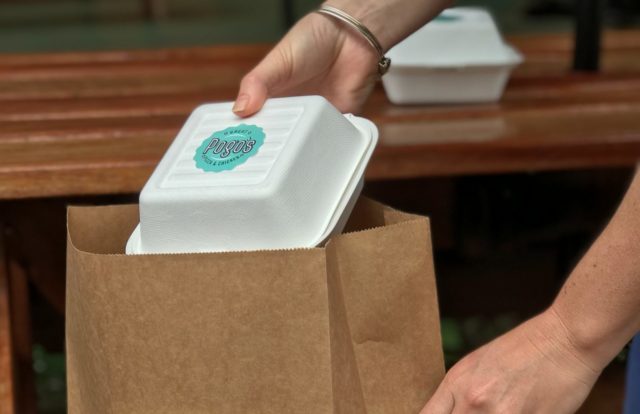
Rules on Trading Outside and Off Sales Relaxed
On 22nd July 2020, the Business and Planning Act 2020 came into effect. The Act contained provisions for licensed businesses, most notably creating a new Fast Track Pavement Licence scheme, to assist licensed businesses to utilise outside areas without needing to apply for a conventional Pavement Licence or planning permission, with the delays and costs involved (the new Fast Track Pavement Licence fee was limited to £100, and the consultation period was 7 days, with an automatic deemed grant if the authority did not make a decision within the 7 days following the end of the consultation period). The Act also contained provisions allowing premises that were not permitted to provide off-sales to do so without having to make an application to vary their licence, and to suspend any conditions relating to sealed containers or deliveries on those licensed premises with existing off-sales authorisations, all subject to a pre-cut off time of 11pm. The measures were an attempt to exploit what was left of summer and, anecdotally at least, the Pavement Licence provisions were more successful than the off-sales, not least because many pubs and bars already have off-sales permitted on their licences. To what extent the provisions assisted genuine on-licences, for example many in the restaurant sector, would be an interesting question to answer.
Many councils were trying to help licensees but a special note ought to be made here that as early as 2nd July Westminster City Council released proposals to support the hospitality sector, including its own ‘fast-track’ scheme for tables and chairs licences, nearly a month before the Government’s own version came into effect. Often applications were granted the day they were lodged. Other proposals included nearly 50 schemes comprising timed closures of certain roads, widening pavements or more tables and chairs on roads which were already closed or pedestrianised, stretching from Paddington to Covent Garden and including the Marble Arch London BID area.

Clampdown on Organised Raves
On 27th August, the Government amended the Regulations to create a new offence of participating or organising an illegal indoor rave, or certain other gatherings of more than 30 persons, during the pandemic (The Health Protection (Coronavirus) (Restrictions on Holding of Gatherings and Amendment) (England) Regulations 2020). Those accused of this offence could be issued a fixed penalty notice of £10,000.
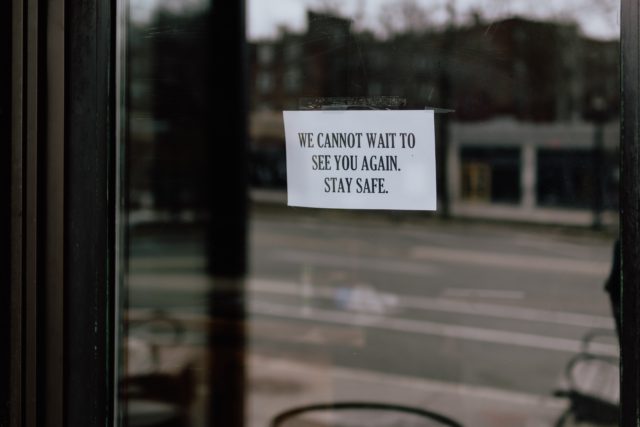
Local Restrictions
Local restrictions had begun to be imposed as early as the 4th July, in Leicester. More areas were placed in local lockdown during the summer and autumn covering areas such as:
- Blackburn with Darwen,
- Luton,
- Bradford,
- “the North of England”,
- Bolton,
- Birmingham, Sandwell and Solihull and
- “the North East of England”,
ranging from 4th July until 18th September.
Rules differed in each area and frequently changed, and by the end of autumn there was a complicated and confusing patchwork of local restrictions across England.
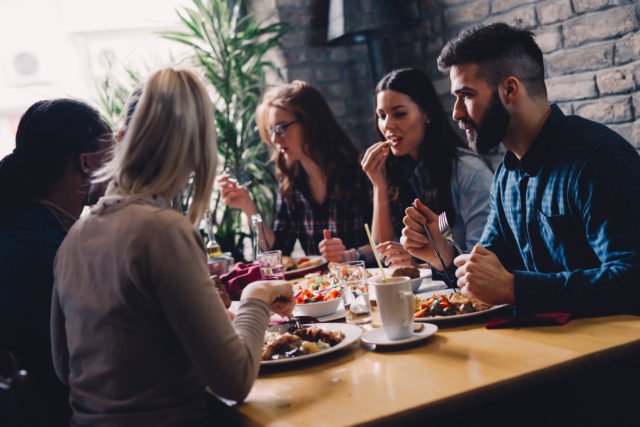
The Rule of Six
This confusion was acknowledged by the Prime Minister himself on 9th September when, at a press conference at No. 10, he stated that: “Over time, the rules have become quite complicated and confusing” and that the Government was simplifying and strengthening the rules – “Making them easier for you to understand and for the Police to enforce”.
On 14th September, the “Rule of Six” was put into law by The Health Protection (Coronavirus) (Restrictions) (No. 2) (England) (Amendment) (No. 4) Regulations 2020 – subject to exemptions, people would be prohibited from meeting socially in groups of more than six in any setting.
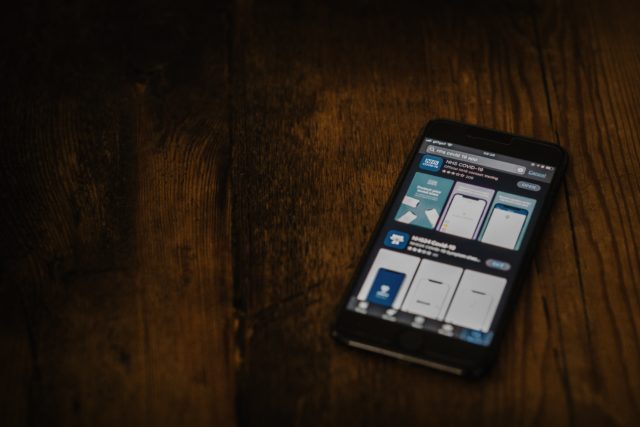
Test and Trace
The Health Protection (Coronavirus, Collection of Contact Details etc and Related Requirements) Regulations 2020 came into force (for the most part) on 18th September. The Regulations applied to hospitality businesses of all shapes and sizes, and detailed the obligations that the “relevant person” who operates or occupies the premises had for displaying a QR Code (so that members of the public could scan it upon entry) and a requirement to request certain details from individuals of 16 years of age or over, to allow Test and Trace details to be obtained. Where the individual was a member of a group seeking to enter the premises it was sufficient to ask only the lead member of that group for his or her details (although both the Regulations and guidance were unclear about this and yet again it took some time to clarify by ministerial statement whether simply asking one member of the group rather than all of them was sufficient).
The Regulations provided that the person providing the service must take all reasonable steps to prevent access to an individual who refused to provide the requisite details, or if those details were believed to be inaccurate.
Licensees therefore found themselves in the position of gatekeepers and detectives, but the reality was that in most circumstances all licensees could do was to ask for details and take the response at face value.
At the same time on 18th September The Health Protection (Coronavirus, Restrictions) (Obligations of Hospitality Undertakings) (England) Regulations 2020 came into force which required pubs, cafés, restaurants and other relevant businesses to take all “reasonable measures to ensure” that no bookings for groups of six or more persons were accepted, and that no persons were admitted to the premises in a group of more than six unless one of the exemptions applied. In an almost unprecedented piece of legislative drafting, the use of the word “mingle” described how no person from one group was permitted to mix with any other person in another qualifying group unless exempted.
An appropriate distance needed to be maintained between tables, namely at least 2m, or 1m with “mitigations” such as barriers, screens or back to back seating.
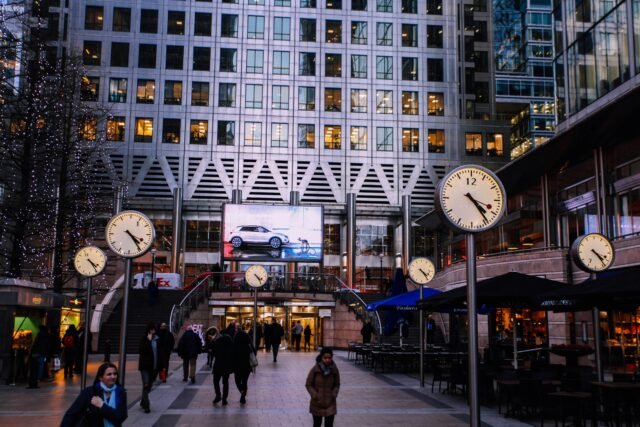
Curfew
On 23rd September 2020, the Amendment No. 5 Regulations were made, bringing in the dreaded 10pm curfew. Earlier, the Prime Minster had stated that: “All pubs, bars and restaurants must operate a table service only, except for takeaways. Together with all hospitality venues, they must close at 10pm and to help the Police enforce this rule I am afraid that that means, alas, closing and not just calling for last orders, because simplicity is paramount. The same will apply to takeaways, although deliveries can continue thereafter. I am sorry that this will affect many businesses just getting back on their feet, but we must act to stop the virus from being transmitted in bars and restaurants”.
Pubs, bars and other licensed premises were therefore faced with two scenarios that in normal times would not have been considered good practice in the night-time economy – no express drinking up time, and a fixed universal closing time, when most operators would agree that gradual dispersal is best.
Cinemas, theatres and concert halls were permitted under the Regulations to stay open beyond 10pm to conclude a performance that had begun before 10pm but were then obliged to shut once the performance had concluded (alcohol sales still had to cease at 10pm). This itself raised issues as to what exactly was a cinema, theatre or concert hall? After campaigning from the Music Venue Trust and others, the Government conceded that live music venues could be considered concert halls for the purposes of this provision, a move which opened up many more venues beyond 10pm, but it is an example of the haste with which the Parliamentary draftsmen were required to put into effect Government policy, and the inconsistencies and unintended consequences that arise from rushed law-making without proper consultation among stakeholders who know their trade.
Off-sales via drive-thru, delivery following online or telephone orders were permitted so long as the purchaser did not enter the premises.
The table service requirement also threw up some issues, with the Regulations stating that customers would not be able to order or stand at the bar.
The rules became complicated because if a premises chose not to sell alcohol, they still needed to comply with the requirement to take all reasonable steps to ensure that customers remain seated whilst consuming food or drink, albeit not being required to provide table service. Equally, fast food and other casual dining outlets that served alcohol had to choose between ceasing to serve alcohol and thereby allowing their customers to order at the counter (and, for example, dispensing drinks directly from drink dispensers themselves); or selling alcohol but having to commit to outright table service. There were questions too about whether payment could be made at the counter, particularly for those premises without remote payment technology.
Other premises had to close between 10pm and 5am but were not subject to the table service requirements, namely bowling alleys, cinemas, theatres, amusement arcades, leisure centres, funfairs, bingo halls and concert halls. In other words, customers of these premises were able to order and consume food and be served alcohol as normal, subject of course to a suitable COVID-secure risk assessment and compliance with any licence conditions. One can see why the concept of “re-purposing” re-entered the fray.
In short, what was supposed to be a simplification of the rules did quite the opposite. There was, however, no doubt that the rules had indeed been tightened.
On 28th September, the “Obligations of Undertakings Regulations” introduced on 18th September were amended, to include (what proved to be short-lived) provisions requiring pubs, bars, cafes and restaurants to take all reasonable measures to stop “singing on the premises by customers in groups of more than six” or “dancing on the premises by customers” subject to exceptions relating to wedding ceremonies and civil partnerships.
Additionally, the amended Regulations required that no music was to be played on premises which exceeded 85db(A) when measured at the source of the music. This new decibel limit did not apply to the performance of live music.
The use of the limit of 85db(A) (itself imprecise drafting, as it should be 85dB(A)) was comprehensively dismantled by acoustics expert Peter Rogers and a barrister colleague, Charles Holland. A particular grievance was that the sound limit as stated at ‘85db(A)’ took no account of average – rather than peak – noise levels and, therefore, could be breached at any one instant, even though the measuring of average noise levels was accepted industry practice. (The singing, dancing and decibel-level restrictions were quietly revoked in the Medium Tier Regulations that came into effect on 14th October 2020 – see below)
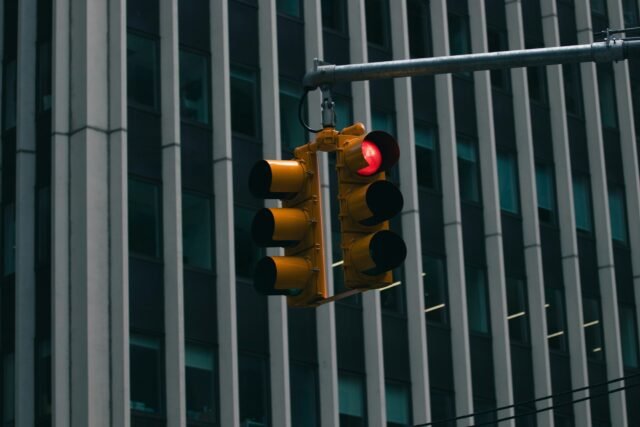
Introduction of the Three Tier System
On 12th October, the Prime Minister made yet another statement saying that the Government was “simplifying” the restrictions by introducing a tiered system: “So, just as we simplified our national rules with the Rule of Six, we will now simplify and standardise our local rules by introducing a three-tiered system of local COVID alert levels in England, set at medium, high and very high” (House of Commons debates, COVID-19 update, 12th October 2020).
On 14th October 2020, the new tiered system was introduced by The Health Protection (Coronavirus, Local COVID-19 Alert Level) [Medium / High / Very High] (England) Regulations 2020.
In brief, areas designated as Medium were the freest, operating with the basic rule of six and with hospitality businesses having to close at 10pm. Areas designated as High included prohibiting people from visiting others with whom they did not live indoors, as well as hospitality businesses closing at 10pm. Very High was the most severe with people being prohibited from mixing with other households both indoors and in most outdoor settings; hospitality businesses having to close at 10pm and pubs, bars and restaurants having to serve alcohol with a “substantial meal”, meaning that most wet-led pubs had to close by default.
What followed was another example of the bewildering unintended consequences of legislative drafting, particularly with regards to what constituted a “substantial meal”. The ensuing debate, and media comment by Ministers, would have been hilarious had the issue not been so serious. Environment Secretary George Eustice told LBC Radio that a scotch egg would constitute a “substantial meal”. Cabinet Office Minister Michael Gove caused confusion by then declaring that the sausage-coated egg is “probably a starter” before telling a subsequent news outlet that it did in fact constitute a substantial meal.
The debate continued with the PM’s official spokesman refusing to spell out the difference between a bar snack and a meal, and not being prepared to discuss the relative merits of sausage rolls, pork pies or ploughman’s lunches. Old legal authorities concerning sandwiches and a side plate of pickles became the subject of intense discussion on radio phone-in programmes. One enterprising pub landlord jokingly renamed an ale “Substantial Meal” in a cheeky bid to get around the new restrictions.
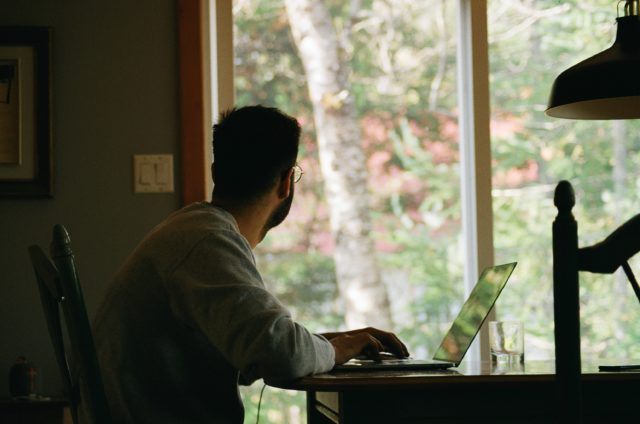
Second National Lockdown
A second lockdown was imposed from 5th November 2020 by The Health Protection (Coronavirus, Restrictions) (England) (No. 4) Regulations 2020. The restrictions were similar to those imposed during the first lockdown, where people had to stay at home unless they had a “reasonable excuse”, and non-essential high street businesses had to close or move their business to delivery only.
The Regulations provided that hospitality venues, such as cafes, restaurants, pubs, bars and social clubs must close for consumption on the premises. Food or non-alcoholic drink off-sales could take place between the hours of 05:00 and 22:00 for take-away, and the purchaser could enter the premises to collect their purchase. After 22:00 till 05:00 the next morning, premises could sell food and non-alcoholic drink, but the sale had to be pre-ordered and only made via a delivery, click and collect or a drive-thru facility. The purchaser could not enter the premises or vacate their vehicle.
Alcohol could be sold at any time but the sale had to be pre-ordered and only made via a delivery, click and collect or a drive-thru facility. The purchaser could not enter the premises or vacate their vehicle.
Off licences were exempt.
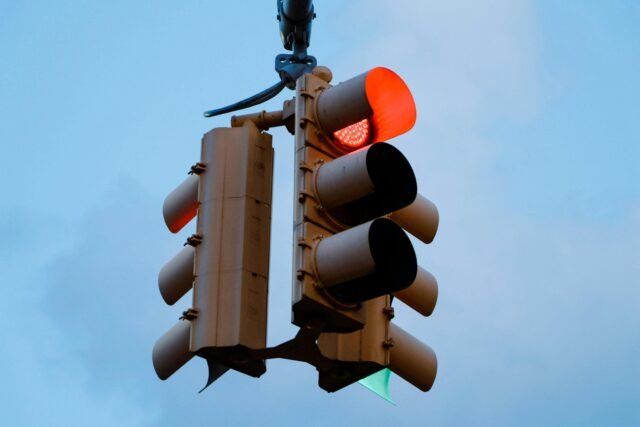
Tier System Returns
A modified tiered system was introduced from 2nd December following the Prime Minister’s statement to the House in late November detailing the Government’s COVID-19 Winter Plan. Special measures were also proposed for socialising during Christmas. The rules took effect from 2nd December and were set out in The Health Protection (Coronavirus, Restrictions) (All Tiers) (England) Regulations 2020, and differed in three significant respects, in relation to the hospitality industry.
- The first was that the rules relating to providing a substantial meal, which had only applied to Tier 3 premises previously, were now a requisite of Tier 2 hospitality businesses. Pubs and bars and other licensed premises in Tier 3 were now required to close and move their business to takeaway or delivery only.
- Those hospitality businesses allowed to remain open were permitted to close at 11pm instead of the previous 10pm.
- Organised large events for elite sportsmen and women, and live performances, for example, could now take place in Tiers 1 and 2, with certain restrictions. Hitherto, organised large events were not permitted in any Tier.
- One particular hot potato was the concession to cinemas, theatres and concert halls that a substantial meal was not required in order to serve alcohol, with music venues being treated as concert halls.
Only Cornwall, the Isle of Scilly and the Isle of Wight were placed in Tier 1.

Christmas Confusion
On 25th November 2020, the Governments in the four nations of the United Kingdom set out their plans to allow families and friends to meet at Christmas with a proposed relaxation of the Coronavirus Restrictions, with the relevant period being 23rd to 27th December, and up to three households being permitted to form an exclusive “Christmas bubble”. These rules were set out in the “All Tiers” Regulations, but on 19th December the Prime Minister, the Government’s Chief Scientific Advisor and its Chief Medical Officer announced in a Downing Street press conference that urgent changes were needed, in response to rapidly increasing cases of COVID-19, especially in London, the South East and East of England, and concerns about a new variant of the Coronavirus virus (“the Kent variant”). A new Tier 4, strictest of all, was announced on 19th December to apply across London and large parts of the South East, coming into force on 20th December at 7am, although not laid before Parliament until the day after, (The Health Protection (Coronavirus, Restrictions) (All Tiers) (England) (Amendment) (No. 4) Regulations 2020). The Tier 4 rules were generally similar to the rules in place during the national lockdown in November. All non-essential retail and hospitality was required to close, with the exception of click and collect, delivery and takeaway services.
For Christmas, all those in Tier 4 areas were not to see the rules relaxed, meaning no indoor gatherings at all (subject to exceptions) and so no meeting up with wider family. In Tiers 1 to 3 Christmas bubbles were allowed but only on Christmas Day, rather than the 5 days originally proposed.
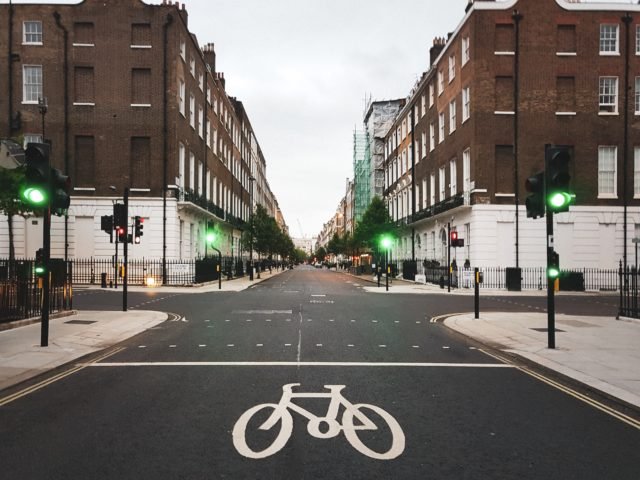
Third National Lockdown
At midnight on 6th January 2021, The Health Protection (Coronavirus, Restrictions) (No. 3) and (All Tiers) (England) (Amendment) Regulations 2021 effectively brought a third national lockdown into force, following continued concerns about the new variant and pressures on the Health Service.
Hospitality venues such as cafes, restaurants, pubs, bars and social clubs were required to be closed and, in a key difference to previous lockdowns and Tier restrictions, selling alcohol for takeaway was not permitted between the hours of 5am and 11pm – only food and non-alcoholic drinks were permitted for takeaway during those hours. Between 11pm and 5am, takeaways were not permitted at all, but all food and drink (including alcohol) could continue to be provided by delivery at any time.

Roadmap out of Lockdown
On 22nd February 2021, the Government published its proposed 4-step Roadmap Out of Lockdown. Step 1 started on the 8th March with the re-opening of schools. From the same date, people could also leave home for recreation with their household or support bubble, if eligible for one, or with one person outside their household.
New regulations (the “Steps Regulations”) were passed and came into force on the 29th March – the Health Protection (Coronavirus, Restrictions) (Steps) (England) Regulations 2021. The Steps Regulations would expire on the 30th June 2021 unless revoked or replaced before then.
From the 29th March, and still in Step 1, the Stay at Home Order was lifted and the Rule of 6 was reintroduced in outdoor settings. Outdoor sports facilities were permitted to re-open, and formally organised outdoor sport to recommence.
On the 12th April England moved to Step 2. Most outdoor attractions and settings were permitted to open, including outdoor hospitality, venues, zoos, theme parks and drive-in cinemas. Pubs, bars and restaurants, together with other hospitality venues that served alcohol were only permitted to do so outdoors, but there was no requirement for customers to order a substantial meal with alcoholic drinks and no curfew. The main requirement was that customers must order, eat and drink while seated (referred to as “table service” in the government’s own Roadmap guidance, although strictly speaking the requirement was that customers be seated, not seated at a table.) As before, there was some confusion with interpretation of the regulations. A strict reading suggested that where premises served alcohol customers were not permitted indoors apart from to use toilets or baby changing and breast-feeding facilities, leaving pubs and bars that had no means of providing remote payment in a bit of a pickle, given that their customers were all seated outside.
With some heavy and urgent lobbying, however, the guidance was changed to make it clear that whilst payment was preferable outside, it could be made indoors for premises that serve alcohol “as a last resort”.
Step 3 came into effect on the 17th May, and was as close to “normal” as many of us had seen for some time. Indoor hospitality was allowed to re-open, and as with Step 2, venues did not have to serve a substantial meal with alcoholic drinks, and neither was there any curfew. Customers were, however, required to order, eat and drink while seated. Indoors, the Rule of 6 or 2 households (of any number) applied. Outside, groups of up to 30 were permitted.
Other indoor locations to open up in Step 3 included indoor entertainment venues such as cinemas and children’s play areas, the rest of the accommodation sector, including hotels, hostels and B&Bs and bingo halls. Indeed, perhaps for the first time, the list of businesses and services that were required to close was smaller than those permitted to open – nightclubs, dance halls, discos, sexual entertainment venues, hostess bars and venues providing shisha facilities were the only businesses required to remain closed.
On Tuesday 8th June 2021 the Alcohol Licensing (Coronavirus) (Regulatory Easements) (Amendment) Regulations 2021 were laid in Parliament, which proposed to extend the off sales relaxations set out in the Business and Planning Act until 30 September 2022, and further, for the years 2022 and 2023 only, increased the allowance for temporary events notices from 15 to 20, and the maximum number of days such events may be held from 21 to 26. At the same time, the Business and Planning Act 2020 (Pavement Licences) (Coronavirus) (Amendment) Regulations 2021 were laid, which sought to extend the expiry date of the Fast Track Pavement licence process for a further year until 30 September 2022. All these provisions have now come into force.
On 14th June the Prime Minister announced a further month’s delay to the originally proposed 21st June, before Step 4 was implemented, potentially ruining much of the summer festival season. On 19th July 2021 all substantive restrictions on the hospitality industry came to an end on what has been dubbed “Freedom Day”.
Given the high rate of Covid infections prevailing, the Government has issued guidance calling for extreme caution to be taken despite lifting all legal requirements. The hospitality industry must, of course, have regard to such guidance as it scrutinises its risk assessments but need not follow it slavishly. The crucial point is that operators remain under a legal duty to provide a safe environment for their staff and customers and so long as that is achieved they will be operating lawfully.
Once hospitality gets back to normal the after-shocks will become clearer. Many businesses have already closed and will never re-open their doors. Others are so encumbered with debt and rent arrears that their fate lies in the balance, together with hundreds of thousands of jobs and livelihoods.
Given the pent up desire among humans to socialise again and enjoy freedoms we have until now taken for granted, the hope is that the rest of the decade will see a second coming of the “Roaring Twenties”.
Hospitality will lead the way.
Contains Parliamentary information licensed under the Open Parliament Licence v3.0
Printable PDF
Download a printable version of this document using the link below.

